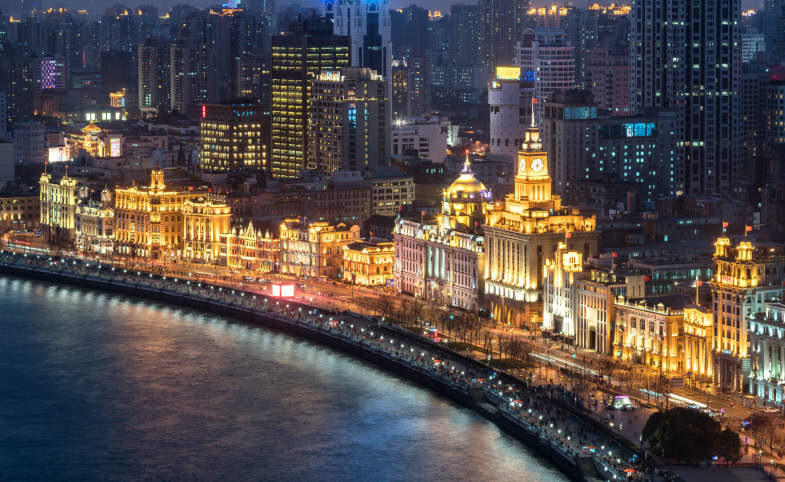The CPD Blog is intended to stimulate dialog among scholars and practitioners from around the world in the public diplomacy sphere. The opinions represented here are the authors' own and do not necessarily reflect CPD's views. For blogger guidelines, click here.

Sports Tourism in Shanghai
Once an international metropolis, Shanghai was for the entire pandemic the shadow of its vibrant, cosmopolitan, and diverse communities. As foreigners withdrew from the country and local travelers were forced to stay home, tourism in the city suffered from four years of lockdowns and border controls. Within a year, visitor arrivals in Shanghai completely slowed down, dropping nearly 86% between 2019 and 2020. While domestic tourists are slowly coming back to Shanghai, international crowds, particularly from outside the region, are still bound to visit. At the frontier between policy and public diplomacy, Shanghai is now betting on popular sports to draw crowds back in.
In light of economic slowdowns and tourism at an all-time low, China quickly readapted its regulations on visas and tax policies. In early 2024, the country eased customs by granting 15-day visa-free entry to selected countries. By November 2024, the scope of countries concerned had expanded, with some even benefiting from a 30-day period. As of today, passport holders from 38 countries can now benefit from visa-free entry, and nationals of 54 countries are allowed to visit major cities for up to 10 days thanks to a visa-free transit policy.
"As China revamps its tourism strategies and eases visa and tax restrictions, cities within can reimagine themselves. For Shanghai, sports will be central to this strategy in the upcoming years and will contribute to a broader effort to recalibrate China’s soft power in the post-pandemic world."
Among other ports of entry, both airports in Shanghai are eligible for this lift of restriction. Tax policies have also been optimized to create a more foreigner-friendly environment. Piloted in tier-1 cities, and in particular in Shanghai, the tax refund program for overseas travelers aims to boost consumption by making tax-refund on purchases easier for travelers by changing the refund-upon-departure policy to a refund-upon-purchase model. This change not only streamlines the process but also encourages more immediate spending—a win-win for tourists and businesses.
But if policy can open the door, sports might just be the invitation. While those efforts are important steps to make Shanghai more accessible and appealing to foreigners by cultivating an image of openness to international crowds, sport tourism might just rebrand Shanghai as to what it was before the pandemic: vibrant, young, and exciting. By boosting industries like sports and advertising a World Major Marathon and Formula 1, tourists might have an even bigger reason for their visit. Encouraging sports is thus part of China’s broader tourism policy.
The return of the Shanghai international circuit in the Formula 1 competition in 2024 was in fact a highly anticipated event for the city that hoped to promote the cultural symbolism of China. Built in 2003, the 56-lap circuit is back in action as Formula 1’s success continues to grow both nationally and worldwide.
After a triumphant return, the 2025 edition was even more successful with 20,000 additional attendees, putting the total number of visitors at 220,000 spectators. The elite motorsport proved a tourist magnet: 10% of the overall attendance in 2025 were international visitors, up from 5% the previous year. Similarly, visitor and consumer spending were up CNY3.9 billion.
In addition, Shanghai has been pushing its candidacy as an Abbott World Major Marathon. If it successfully passes a rigorous assessment process, Shanghai could receive the Abbott World Major stamp of excellence as soon as 2027. Showcasing organizational and logistics prowess, Shanghai would prove itself capable of hosting such a prestigious crowded event, and invite international participants. World Majors like the New York City Marathon often host up to 55,000 participants from 137 nationalities. Becoming one of the nine marathons recognized as such boost Shanghai’s economy and tourism, giving the international visibility the city once enjoyed. From Berlin to Boston, runners of World Majors and their supporters travel the world to participate in races, often turning events into week-long vacations. Gaining World Major status would instantly elevate Shanghai’s international profile. It would bring thousands of overseas runners and spectators, attract sponsors, and inject life into local tourism and retail sectors.
As China revamps its tourism strategies and eases visa and tax restrictions, cities within can reimagine themselves. For Shanghai, sports will be central to this strategy in the upcoming years and will contribute to a broader effort to recalibrate China’s soft power in the post-pandemic world.
Visit CPD's Online Library
Explore CPD's vast online database featuring the latest books, articles, speeches and information on international organizations dedicated to public diplomacy.
POPULAR ARTICLES
-
January 29
-
January 20
-
January 28
-
January 2
-
January 8
Join the Conversation
Interested in contributing to the CPD Blog? We welcome your posts. Read our guidelines and find out how you can submit blogs and photo essays >.









